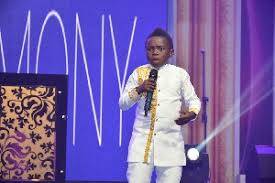Yaw Dabo’s Statement to Dela Edem: "You Don’t Deserve to Be Kufuor’s Gateman"
In a recent public statement, Ghanaian actor and comedian Yaw Dabo sparked a wave of controversy when he directed a harsh comment towards Dela Edem, a political commentator and social media influencer. Dabo, who is known for his outspoken and sometimes provocative personality, accused Dela Edem of attacking former Ghanaian president John Agyekum Kufuor, declaring that Edem "doesn't deserve to be Kufuor's gateman." The statement has quickly become a topic of public discussion, drawing both criticism and support from various corners of Ghanaian society.
The Context of the Statement
Yaw Dabo’s comment was made in response to remarks from Dela Edem that were perceived as disparaging towards Kufuor, a figure widely respected in Ghanaian politics. Kufuor, who served as the president of Ghana from 2001 to 2009, has long been admired for his role in stabilizing the country's political landscape and overseeing significant economic and infrastructural development during his tenure. However, like many political figures, Kufuor has his detractors, and Dela Edem, a known critic of political figures, has often voiced his opinions regarding the former president’s policies and leadership.
Dabo’s response was a direct rebuttal to Edem’s attack on Kufuor, which he believed was uncalled for and disrespectful. According to Dabo, Edem’s criticism was out of line, especially considering Kufuor's contributions to the nation. In his statement, Dabo insinuated that Edem lacked the necessary qualities or stature to make such criticisms, emphasizing that someone who had not achieved Kufuor’s level of influence or respect in the country had no right to belittle the former president.
The Backlash
The statement has not been without its controversies. Critics argue that Dabo's remark was overly harsh and unnecessary. Many felt that it was an example of silencing dissenting opinions, as political discourse should ideally allow for different viewpoints, even if they challenge the status quo. By suggesting that Edem did not "deserve" to be a gateman to Kufuor, Dabo’s comment was seen as an attempt to undermine Edem’s right to speak out, framing the disagreement as one of power rather than policy.
Others, however, have defended Dabo, seeing his statement as a passionate defense of Kufuor’s legacy. For those who view Kufuor as a national hero, Dabo’s words resonated as a call to protect the dignity of influential figures against unwarranted attacks. In Ghanaian politics, where political loyalty and respect for elders are highly valued, such remarks are often seen as necessary in maintaining the integrity of public figures.
The Bigger Picture: Freedom of Speech and Political Discourse
The exchange between Yaw Dabo and Dela Edem brings to light a larger issue in Ghanaian political discourse: the balance between freedom of speech and respect for authority. Ghana, a democracy, prides itself on the right to free expression, but that freedom is often tested when it comes to criticisms of influential figures, especially former heads of state. While it is essential to allow people to express their views, it is equally important to maintain civility in political discussions, particularly when those views are directed at respected leaders.
Dabo’s comment highlights the polarizing nature of political discourse in Ghana, where opinions on leadership are often deeply entrenched, and attacks on public figures can spark strong emotional responses. The debate over his statement reveals the fine line between holding leaders accountable and respecting their contributions to national development.
Conclusion
Yaw Dabo’s comment to Dela Edem, accusing him of not deserving to be Kufuor’s gateman, has certainly stirred debate in Ghana. Whether seen as an overreaction or a justified defense of Kufuor, the incident reflects the tensions that often arise when public figures are criticized. In the end, it is a reminder of the importance of respectful dialogue and the complexities of political discourse in a democratic society. As the discussion unfolds, it remains to be seen whether this exchange will lead to a broader conversation about the role of public figures in politics and the limits of criticism in Ghanaian public life.


